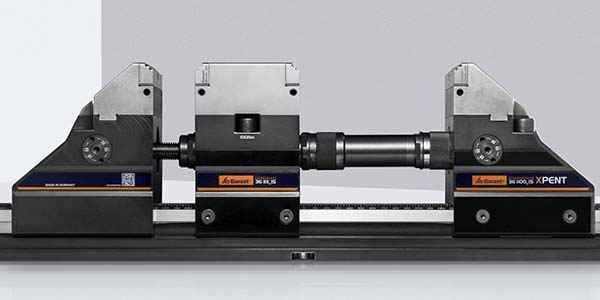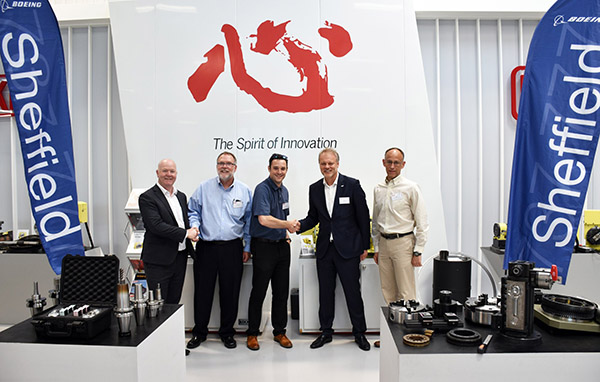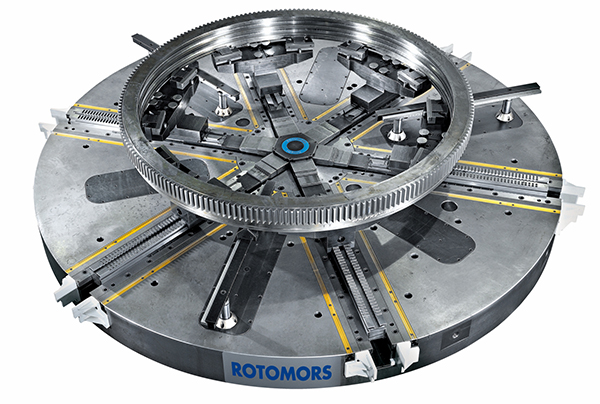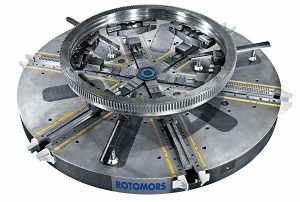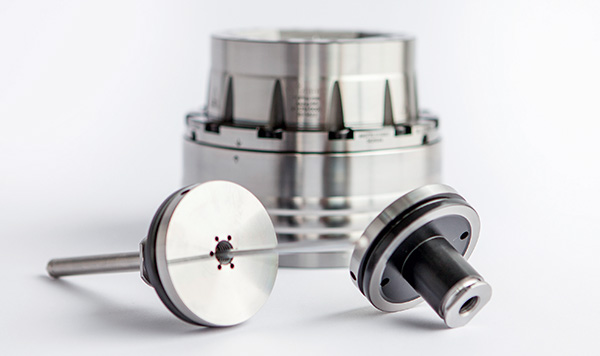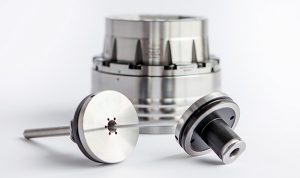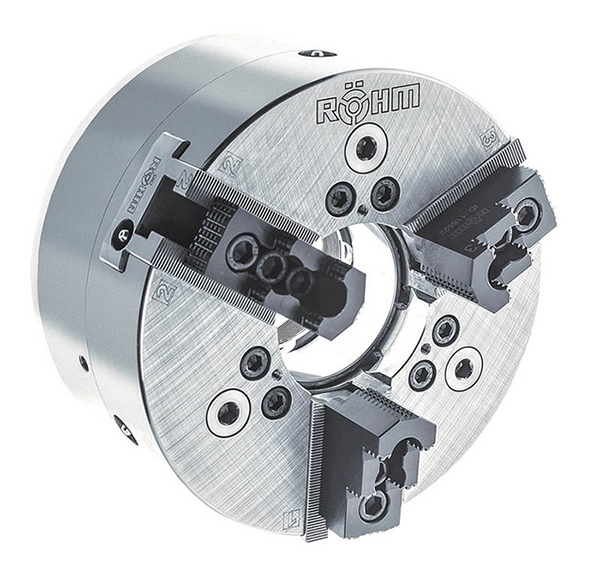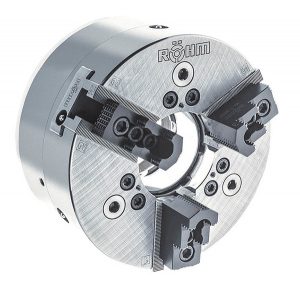The Hoffmann Group has introduced a new module for its Garant Xpent five-axis vice.
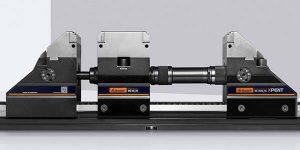
This centre jaw, which can be optionally fitted to the base rail, has made it possible to clamp two workpieces with just one vice, and process them in a single operation. Such a configuration means clamping strategies that are more efficient can be implemented, leading to a measurable increase in productivity, says the company.
Garant Xpent vices are based on a modular design concept. Clamping modules, base rails and spindles can be individually combined and the convex clamping modules can be turned through 180°. Hoffman’s newly developed centre jaw offers another bonus, in terms of flexibility, and is immediately available as an accessory for sizes 0 to 1S (and will soon be available in sizes 1 and 2). The existing range of attachment rails, each with two clamping stages, is fully compatible with the new centre jaw.
Each vice has a clamping force of up to 40 kN at a torque of 90 Nm, and is available in three different heights and two widths. Base rails are available in lengths of 360 to 1050 mm. The new 1S size was specially developed for three- and five-axis machines with small
spindle gearboxes.
For further information www.hoffman-group.com






